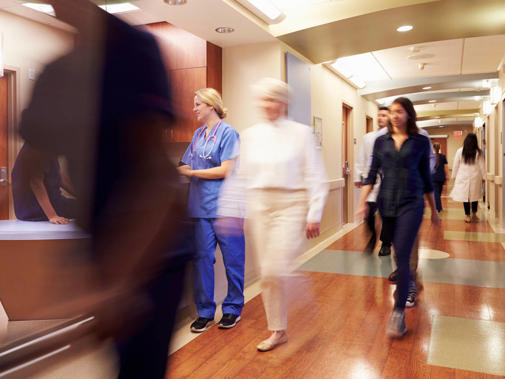It comes as part of a BMA survey of more than 6,500 doctors in England, with more than 70 per cent of staff either not at all or not very confident about the abilities of services in community settings to cope and 65 per cent not confident about their own local healthcare service’s ability to cope.
The survey also reveals that 65 per cent of doctors are quite or extremely anxious about work in the coming months and more than 40 per cent say their levels of stress, anxiety and emotional distress had got worse since the pandemic began.
And doctors say they are very sceptical about the effectiveness of the restrictions. Just under 6 per cent say the measures will have any significant impact on containing the spread of the virus and 37 per cent say they will have no impact or be ineffective.
Harsh winter
BMA council chair Chaand Nagpaul said: ‘Doctors know that this winter is likely be one of the most difficult times of their careers. They are extremely worried about the ability for the NHS to cope and their ability to care for the needs of their patients. These survey findings show the enormous scale of the challenges for the NHS in the coming months – and they reinforce the BMA’s call for a national and strategic approach to getting this virus under control.’
Around one in five doctors say they are seeing more Covid patients than they did at the same point during the first wave and 28 per cent have found non-Covid demand higher than before the pandemic.
The survey also reveals that there remains a backlog of millions of patients not receiving treatment during the first peak, and with only around one-quarter of doctors reporting that they have started to tackle the backlog, millions are still left waiting to be seen.
Dr Nagpaul adds: ‘Doctors are doing their best to keep patients safe, with seven in 10 are saying they are providing remote consultations to prevent the spread of infection in hospitals and GP practices. But with this work often taking longer and proving more tiring, it’s clear that over-work and under-capacity is taking its toll on the NHS, its workforce and its patients.’
Patient safety
The survey also reveals deep concern relating to patient care. Sixty-five per cent of doctors say staffing shortages were their most pressing concern – and four in 10 report that colleagues having to self-isolate owing to Covid infection is affecting patient care.
It also showed that doctors are concerned about their personal health and wellbeing (60 per cent) and their ability to cope with caring for non-Covid patients (58 per cent). Forty-four per cent are most worried about the plans to manage the huge backlog of patients and the care and treatments they are waiting for.
Dr Nagpaul added: ‘As the waiting lists continue to grow and more and more beds are needed by those with Covid, this second wave could be devastating for patients, the health and social care service and those working in it.
‘Large numbers of doctors across England have little faith that the Government’s current ‘Tiered’ lock-downs will have any significant impact on controlling the virus. Instead of a few short weeks of suppression, bringing economic and emotional misery for those in the areas affected, we need a national prevention strategy that has a lasting impact and gets growing infection rates under control across England.’
Public calling
The BMA is calling for the Government to be honest and realistic with the public about whether the NHS can cope with routine care and Covid care this Winter, and to provide a transparent and systematic approach to ensure that all patients in urgent need will be seen and treated in the coming months. It must provide the investment necessary to enable the NHS to do this.
And the association has also repeated demands for the £12bn test and trace programme to be moved away from the private sector and the funds used to integrate test trace and isolate into the NHS and public health structures.

